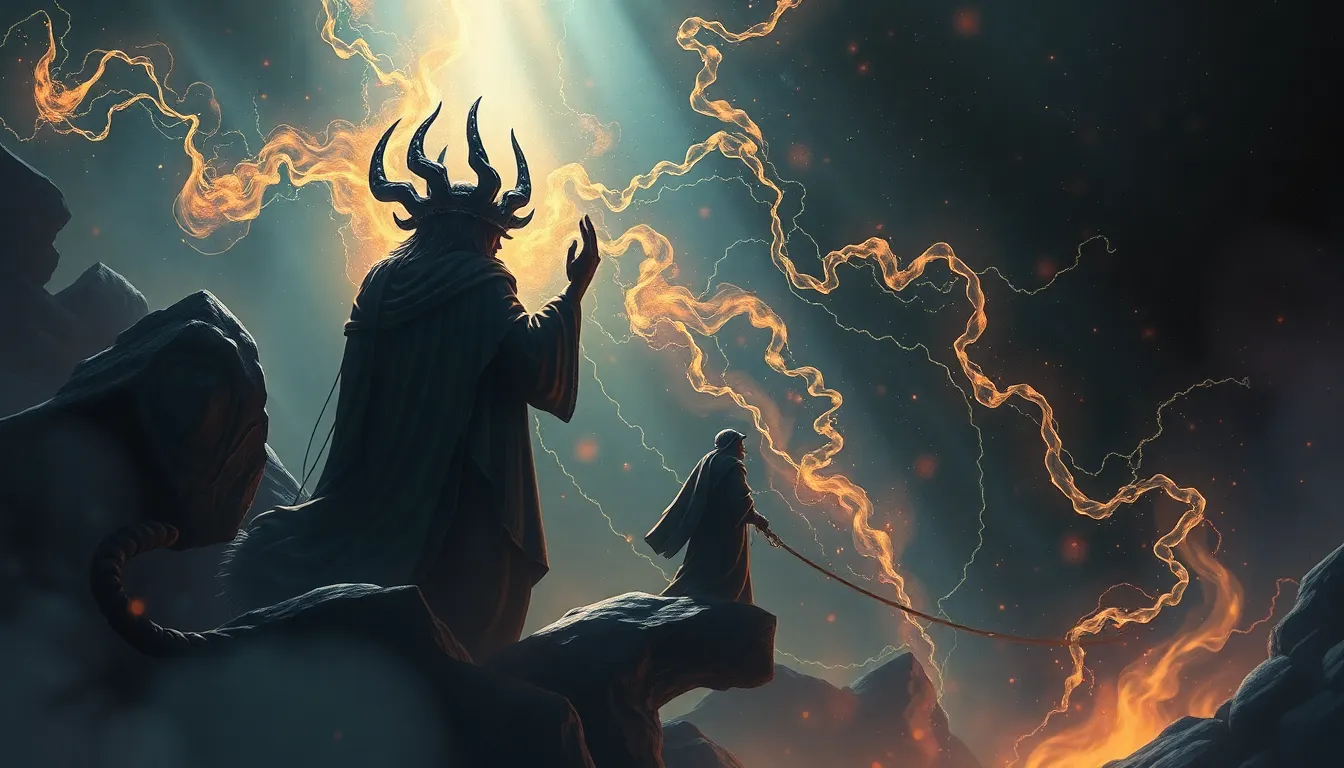The Quest for the Mythical Wisdom: Legends of Insight
1. Introduction to Mythical Wisdom
Wisdom has long been revered as a fundamental virtue across various cultures, embodying the art of making sound judgments and decisions. It transcends mere knowledge, encompassing the ability to apply insights in practical and meaningful ways. In many traditions, wisdom is linked to the divine or supernatural, often portrayed in legends and folklore as a guiding force in human lives. This article explores the portrayal of mythical wisdom through the lens of different cultures and the lessons embedded in these timeless tales.
2. Historical Context of Wisdom Legends
Throughout history, civilizations have crafted rich tapestries of wisdom myths that reflect their values and beliefs. Ancient cultures such as the Greeks, Egyptians, and Chinese each contributed unique narratives that illuminate the essence of wisdom:
- Greek Civilization: The wisdom of Socrates, encapsulated in the phrase “Know thyself,” laid the foundation for philosophical inquiry and ethical living.
- Egyptian Civilization: The “Maxims of Ptahhotep” serve as a testament to the importance of wise counsel and moral integrity.
- Chinese Civilization: The teachings of Confucius emphasize the cultivation of virtue and the importance of knowledge in governing oneself and society.
Oral traditions played a vital role in preserving these tales, allowing them to be passed down through generations, often evolving with the societal context and values of the time.
3. Common Themes in Wisdom Legends
Wisdom legends often share common themes that resonate across cultures:
- The Archetype of the Wise Old Man or Woman: Figures such as Merlin, Laozi, and the Oracle of Delphi symbolize the culmination of life experience and insight.
- The Journey of Self-Discovery and Enlightenment: Many tales involve protagonists embarking on quests that lead to profound personal growth and understanding.
- The Interplay Between Knowledge and Humility: True wisdom often emphasizes the importance of humility, recognizing the limits of one’s knowledge.
4. Prominent Legends and Their Lessons
Several legendary figures embody the essence of wisdom, imparting valuable lessons that continue to resonate today:
- Case Study: The Story of King Solomon – Renowned for his unmatched discernment, Solomon’s judgment in the case of two mothers claiming the same child illustrates the importance of empathy and insight in decision-making.
- Case Study: The Taoist Tales of Laozi – Laozi’s teachings on “wu wei” or effortless action reveal the power of aligning with the natural flow of life rather than forcing outcomes.
- Case Study: The Wisdom of the Sufi Mystics – Through parables and poetry, Sufi traditions highlight the inner journey towards enlightenment, emphasizing love, compassion, and the search for truth.
5. The Role of Nature in Wisdom Legends
Nature frequently serves as a powerful symbol of wisdom in many myths, representing the interconnectedness of all life. Key elements include:
- Trees: Often seen as symbols of knowledge and life, trees in various cultures signify growth and the passage of time.
- Rivers: Rivers symbolize the flow of wisdom and the continuous journey of life.
- Animals: Creatures in legends often embody specific traits, such as the owl representing knowledge and intuition.
6. The Influence of Mythical Wisdom on Modern Thought
Ancient wisdom legends continue to shape contemporary philosophies and self-help ideologies. In the 21st century, there is a resurgence of interest in wisdom literature, reflecting a collective yearning for deeper understanding and fulfillment. Modern thinkers draw on these timeless narratives to explore themes of personal growth, ethical leadership, and emotional resilience.
7. The Psychological Perspective on Wisdom
Psychology offers insights into the nature of wisdom, highlighting its multifaceted character. Research indicates that:
- Wisdom encompasses cognitive, reflective, and affective dimensions, integrating knowledge with compassion.
- Emotional intelligence plays a crucial role in wise decision-making, as it fosters empathy and understanding.
This intersection between mythical wisdom and psychological principles underscores the profound relevance of these ancient tales in understanding human behavior and relationships.
8. Cultural Variations of Wisdom Legends
A comparative analysis of wisdom myths across cultures reveals both unique expressions and universal themes. For example:
- Native American Legends: Frequently emphasize harmony with nature, with wise figures acting as mediators between humanity and the natural world.
- African Folktales: Often feature clever tricksters who teach moral lessons through their adventures.
- Asian Myths: Highlight the importance of balance, with stories that illustrate the interplay of opposites, such as yin and yang.
These narratives reflect the shared human quest for wisdom while celebrating cultural diversity.
9. The Quest for Personal Wisdom in the Modern World
In today’s fast-paced, information-driven society, cultivating wisdom is more important than ever. Practical applications of ancient wisdom can guide individuals on their personal journeys:
- Engaging in self-reflection and mindfulness practices to foster deeper understanding of oneself.
- Seeking mentorship and guidance from those who embody wisdom in their lives.
- Embracing lifelong learning and remaining open to new perspectives.
10. Conclusion: The Timeless Relevance of Wisdom Legends
The enduring quest for wisdom is a testament to its significance throughout human history. Myths and legends serve as mirrors, reflecting our aspirations, challenges, and the profound insights that can be gleaned from our experiences. As we navigate the complexities of modern life, we are encouraged to seek personal insight through the lens of mythical wisdom, drawing inspiration from the stories that have shaped our collective consciousness.




